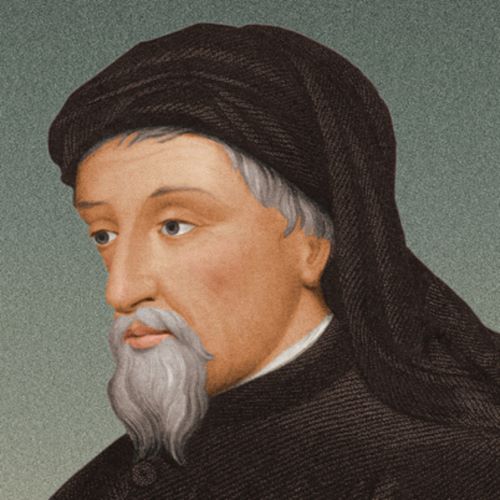
Geoffrey Chaucer was a prominent poet and author in the 14th century
SHOUKAT LOHAR
Geoffrey Chaucer, often referred to as the father of English literature, was a prominent poet and author in the 14th century. His most renowned work, “The Canterbury Tales,” provides a vivid depiction of medieval society and exhibits remarkable realism. Chief features of Chaucer’s poetry and his era.

Chaucer’s Realism and 14th Century England Society
- Social Hierarchies: Chaucer’s work offers a comprehensive portrayal of the social structure of the time, highlighting the stark divisions between the nobility, clergy, and commoners. Through his characters, he explores the complex interactions and power dynamics within this stratified society.
- Satire and Critique: Chaucer’s use of satire in “The Canterbury Tales” allows him to critique societal flaws and expose the hypocrisy of various institutions, including the Church and the aristocracy. His realistic and often humorous characterizations provide a window into the realities of the time.
- Human Nature and Morality: Chaucer’s characters reflect a range of human virtues and vices, offering valuable insights into the complexities of human nature and moral dilemmas. Their struggles and experiences resonate with readers across time, making Chaucer’s work relatable and enduring.
 Relevance of Chaucer Today
Relevance of Chaucer Today
- Timeless Themes: Chaucer’s exploration of universal themes such as love, desire, social class, and morality continues to resonate with contemporary readers. The struggles and aspirations depicted in his tales remain relevant, as human nature and societal dynamics have not drastically changed over the centuries.
- Literary Influence: Chaucer’s innovative use of the English vernacular in “The Canterbury Tales” played a crucial role in establishing English as a legitimate literary language. His work paved the way for future writers to explore the possibilities of the English language and contributed to the development of English literature.
- Cultural Significance: Chaucer’s portrayal of medieval England provides valuable historical and cultural insights. His work serves as a primary source for understanding the social, political, and cultural dynamics of the time, making it an essential reference for scholars and historians.
Influence on English Language and Literature
- Linguistic Innovations: Chaucer’s use of Middle English in his works helped shape the evolution of the English language. His writings showcased the potential of English as a literary medium, contributing to its acceptance and development as a distinct language.
- Literary Tradition: Chaucer’s storytelling techniques, such as framing narratives and diverse characterizations, have had a lasting impact on English literature. Many subsequent writers have drawn inspiration from his narrative structure and character development.
- Chaucerian Legacy: Chaucer’s influence can be seen in the works of later writers, including Shakespeare, Milton, and the Romantic poets. His realistic portrayal of various social classes and his exploration of human nature set a precedent for future authors, leading to the development of the novel as a popular literary form.
Conclusion
Geoffrey Chaucer’s “The Canterbury Tales” remains a significant literary masterpiece, showcasing his unparalleled realism and insightful portrayal of 14th century England society. Chaucer’s enduring relevance is evident in the continued unstoppable growth of English literature, language and linguistics.
_______________
 Shoukat Lohar is Assistant professor in English at Mehran University of Engineering and Technology Jamshoro. He can be reached at Shoukat.ali@faculty.muet.edu.pk
Shoukat Lohar is Assistant professor in English at Mehran University of Engineering and Technology Jamshoro. He can be reached at Shoukat.ali@faculty.muet.edu.pk